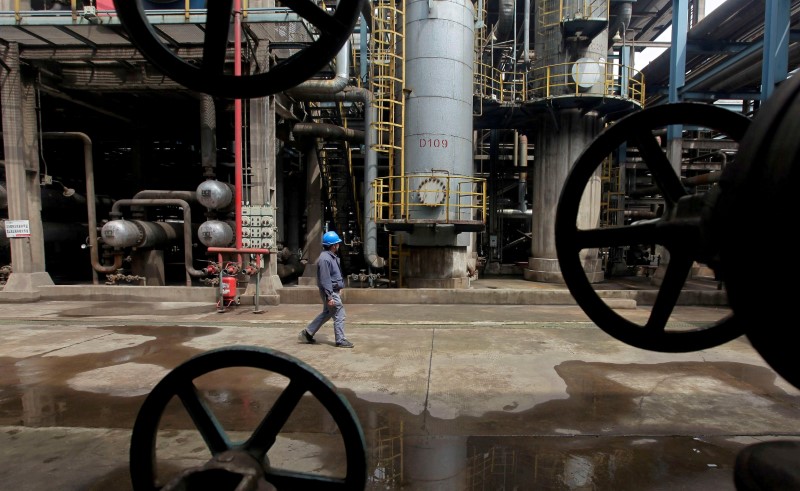* Formal OPEC+ meeting delayed to Thurs from Tues -sources
* Market betting on extension of cuts through Q1 -analyst
* U.S. crude stocks rose 4.1 million barrels last week -API
* Coming up: EIA inventory data at 1530 GMT (Updates prices, adds comment)
By Noah Browning
LONDON, Dec 2 (Reuters) - Oil prices slipped on Wednesday as the market awaited a pact from producers on output, although Britain's approval of a COVID-19 vaccine gave hopes for a demand recovery a boost.
Prices were hit by a surprise build in oil inventories in the United States and as OPEC and its allies created uncertainty with a two-day delay to a formal meeting to decide whether to increase production in January.
Brent crude oil futures LCOc1 were down 13 cents, or 0.3%, at $47.29 a barrel by 1203 GMT, while West Texas Intermediate crude CLc1 was down 21 cents, or 0.5%, at $44.34.
Industry data from the American Petroleum Institute showed U.S. crude inventories rose by 4.1 million barrels last week, compared with analysts' expectations in a Reuters poll for a draw of 2.4 million barrels. would not take huge gambles today, as they are waiting for the final verdict of Thursday's OPEC+ meeting", said Rystad Energy's head of oil markets, Bjornar Tonhaugen.
"When stakes are so high, it is dangerous to move prices much ahead".
The Organization of the Petroleum Exporting Countries (OPEC), Russia and other allies, a group known as OPEC+, postponed talks on next year's oil output policy to Thursday from Tuesday, according to sources. group this year imposed production cuts of 7.7 million barrels per day (bpd) as the coronavirus pandemic hit fuel demand.
It had been widely expected to roll those reductions over into January-March 2021 amid spikes in COVID-19 cases.
But the United Arab Emirates (UAE) said this week that even though it could support a rollover, it would struggle to continue with the same deep output reductions into 2021. on Wednesday became the first western country to approve a COVID-19 vaccine, jumping ahead of the United States and the European Union in what may be a first step toward a return to normal life and boost oil consumption.
